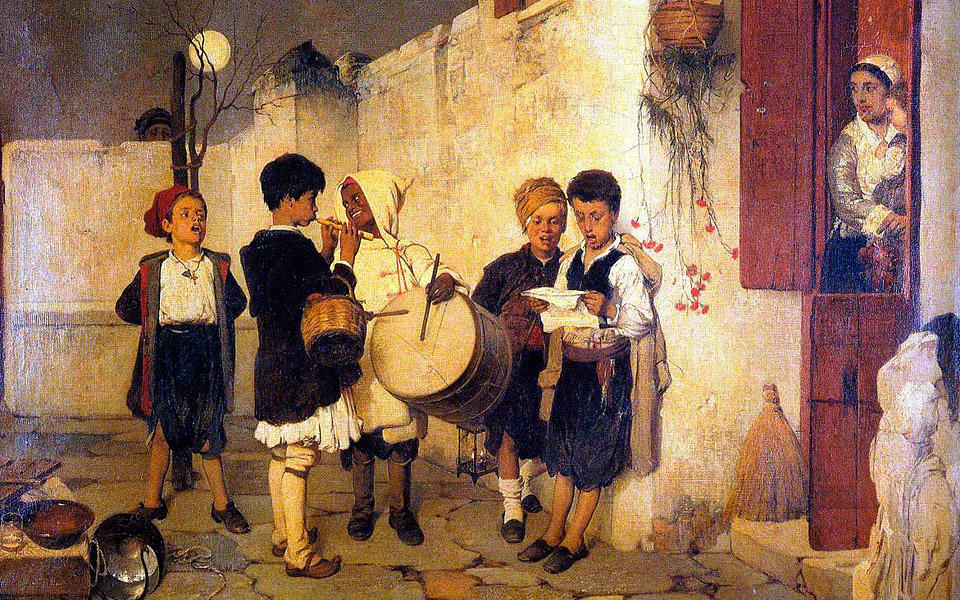The Essential Guide to Greek Christmas Traditions
Explore Greece’s Christmas traditions, from sweet...

The oil in canvas painting "Carols" (1872) by Nikiforos Lytras, depicting children with different origins singing all together
Carols (kalanda), folk and popular songs performed on the eves of the twelve-day festive period’s three major celebrations – Christmas, New Year and Epiphany (January 6) – represent a special feature of the country’s religious customs. The custom is made even brighter as the songs are performed by children who go from house to house to spread hope and joy.
Greece’s carols have Byzantine roots, which, in turn, carry pagan origins dating back to Roman times. This explains why carols were oppressed during the early Christian centuries before the church finally stepped back once the lyrical content of these celebratory songs acquired a purely religious character.
On the eve of Christmas, New Year and Epiphany, young children, gathered in groups of two, three or more venture about from house to house in their respective neighborhoods, or the homes of friends and relatives, singing carols, accompanied by triangle or other simple musical instruments, and spreading joyous messages associated with the festive season. The young performers also extend wishes for longevity and luck to the members of each household and hope to be rewarded some pocket money and a delicious sweet.
Over the years, carols have generated less excitement in major cities, where the overall interest has waned. On the contrary, a custom entailing performances of carols by traditional music and dance school groups to political dignitaries has remained strong. Fortunately, this age-old tradition has remained unaffected in rural areas, smaller towns, villages and islands.
Explore Greece’s Christmas traditions, from sweet...